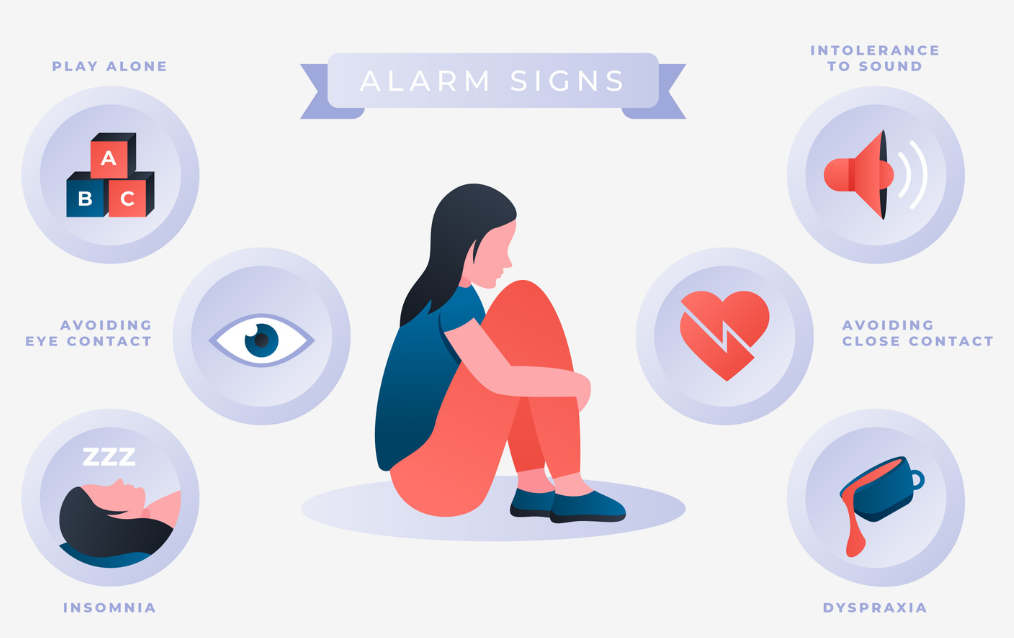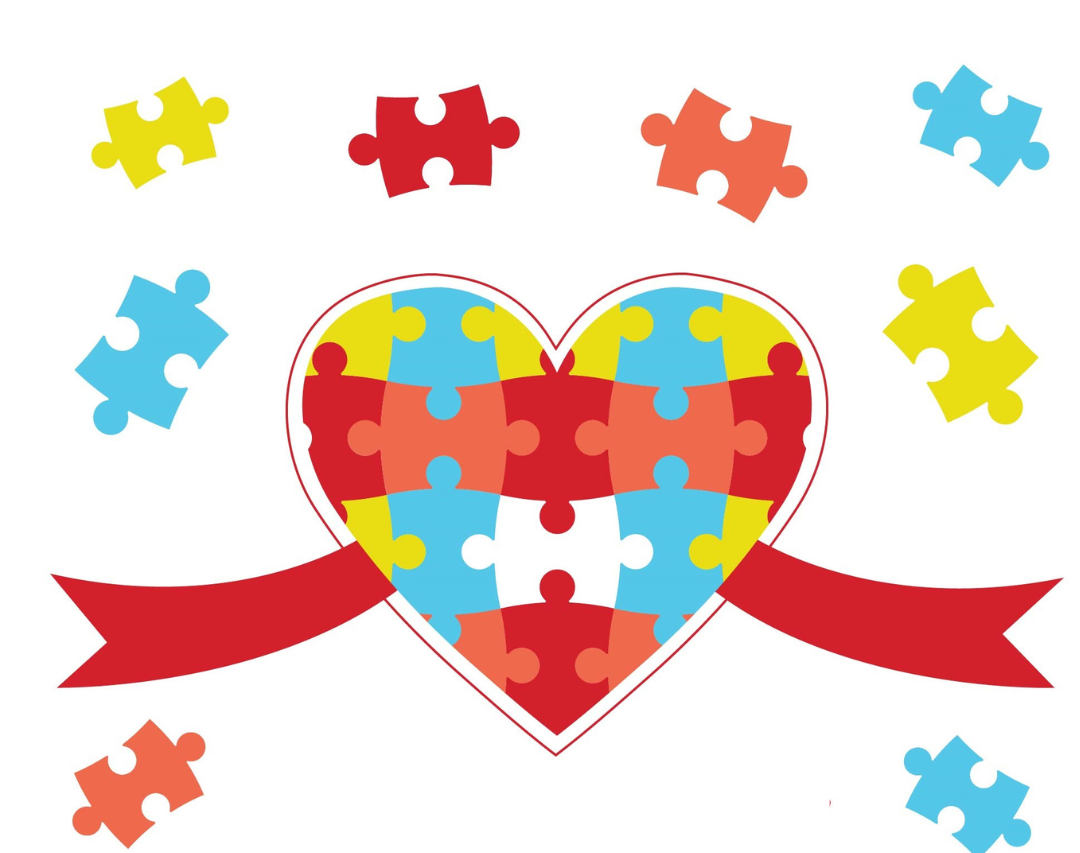World Autism Awareness Day The Rising Prevalence Of Autism
Apr 02, 2023
2159 Views
Autism or Autism Spectrum Disorder (ASD) refers to a group of conditions characterized by challenges with social behavior, repetitive behavior, and speech. Some individuals may present with unique skills and strengths. Individuals diagnosed with Autism Spectrum Disorders present with a wide range of severity. Studies have shown that the prevalence of autism has been increasing over the years, affecting 1 in every 59 children in the United States according to the Centers for Disease Control and Prevention (CDC). It is estimated that autism affects 1 in every 150 children in India, with a higher prevalence among males than females.
Early signs of ASD to look out for
Children commonly develop ASD before the age of 3 years. The three important behavioral symptoms include:
- Less social interaction: They may not feel the need to seek comfort. For example, children may not feel the need to be cuddled or picked up. They may have less interaction with other children or adults.
- Lack of communication: Children with ASD tend to avoid eye contact. They may not be involved in typical pretend play wherein children role-play various activities (such as playing with a doll or pretending to cook). Some children may not make friends as easily as their peers may.
- Repetitive behaviors: Toddlers present with repetitive movements such as twirling strings, flicking pages of books, or licking. Whole body movements include spinning, rocking, and running back and forth.

During the second year of their lives, many children often come to medical attention due to language delays which may become more obvious. Children may also show other behavioral symptoms such as meltdowns, which may be caused by a change in routine, or hypersensitivity to sounds or stimuli.
What are the genetic causes of ASD?
We are still understanding what causes autism. A single genetic cause can be identified for about 30–40% of children diagnosed with autism. For the remaining 60–70% of cases genetic cause remain unknown. In cases of syndromic autism, in addition to being diagnosed with autism, children may present with unique features (e.g., skin pigmentation, large head size) or congenital birth defects (e.g., heart defects or changes in food pipe) requiring surgeries. On the other hand, in cases of non-syndromic autism, children typically do not have additional unique features or congenital birth defects. There is a higher chance of identifying an underlying genetic cause for an individual diagnosed with syndromic autism.
What are the common tests for ASD?
There is a higher chance of identifying an underlying genetic cause for an individual diagnosed with syndromic autism. As per the American College of Medical Genetics, tests offered for children with autism include:
- Fragile X testing for all males: Approximately 20% of boys with fragile X syndrome meet diagnostic criteria for ASDs. Fragile X syndrome is the leading cause of inherited intellectual disabilities like autism. There are behavioral, physical, intellectual, and mental health symptoms.
- MECP2 gene testing in females: 4% of females with ASD have MECP2 mutation
- Chromosomal Microarray (CMA): CMA is a molecular test that looks at large copy number variants, such as deletion and duplication. Children with autism may also present with large copy number variants. 10% of children with autism are found to have a large deletion or duplication.
- Whole Exome sequencing: It is a next-generation sequencing (NGS) technology that comprehensively identifies changes in the genes known to be related to the suspected genetic disorder. Genes are spelled out in letters ‘A’, ‘T’, ‘G’, and ‘C’, and need to be spelled correctly in order for them to work properly. Sequencing the exome (WES) allows us to identify any changes in the letters that make up a gene. About 10% have identifiable neurological, metabolic, or other single-gene disorders.
It is critical that an accurate diagnosis of ASD be made before initiating the genetic evaluation. All patients with ASDs should have a formal audiogram to rule out significant hearing loss.
All persons/families with ASDs should be offered a genetic consultation, and evaluations should be considered for any individual along the entire ASDs spectrum. Genetic counselors or genetics offer pretest appointments for clinical assessment and to discuss expectations and possible outcomes and diagnostic yield of such an evaluation prior to ordering the test.
Upon completion of the clinical genetics evaluation, two groups of individuals will have been identified: those with and those without an identifiable etiology. Genetic counseling should be provided to both groups to understand the genetic condition, management, and possible recurrence risk in individuals with an identifiable genetic cause.

For those without an identifiable cause for ASD, the accepted published recurrence risk for full siblings is approximately 3–10%—although newer studies are suggesting that this risk may be higher. The risk is 7% if the affected child is female and 4% if the affected child is male. If there are multiple children (two or more) with ASDs, published reports would predict at least a 30% recurrence risk. In families where genetic testing has identified a single genetic cause for the ASD, genetic testing in future pregnancies can be offered by prenatal testing between 13-18 weeks of the pregnancy or some couples may opt for IVF with a preimplantation genetic diagnosis that would allow them to identify embryos which are healthy and do not carry the genetic test and implant those for future pregnancy.
Moving forward
This year The United Nations will observe World Autism Awareness Day (April 2) with a global virtual event on the theme “Transformation: Toward a Neuro-Inclusive World for All”. Individuals with autism have struggled for inclusion in mainstream society. The narrative around autism is gradually moving away from misconceptions of curing and converting autistic people to an inclusive approach focusing on accepting, supporting, and involving autistic people, and embracing the concept of neurodiversity — the idea that people experience and interact with the world in many different ways and that there is no one “right” way. This allows us to recognize and appreciate the positive contributions that people with autism make to their families, communities, and to society as a whole.
Services provided at MapMyGenome
MapMyGenome offers genetic counseling services to help you understand the condition and provide you with the right choice of genetic testing.
MapMyGenome also offers clinical genomic testing such as Chromosomal Microarray, Whole exome sequencing etc.
To know more about MapMyGenome clinical genomic testing: https://mapmygenome.in/diagnostic/mother-and-child/
To know more about MapMyGenome Genetic Counseling: https://mapmygenome.in/genetic-counseing/
Reach out to us: Email - info@mapmygenome.in, Toll-free: 1800 102 4595, WhatsApp( 24 hours) : +91 86883 10052.

